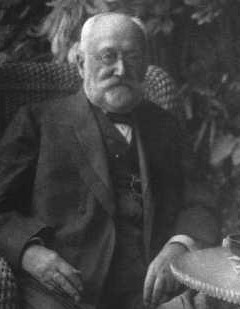
Federal elections were held in Germany on 25 January 1907. Despite the Social Democratic Party (SPD) receiving a clear plurality of votes, they were hampered by the unequal constituency sizes that favoured rural seats. As a result, the Centre Party remained the largest party in the Reichstag after winning 105 of the 397 seats, whilst the SPD won only 43. Voter turnout was 84.7%.
General elections were held in Luxembourg on 30 May 1954. The Christian Social People's Party won 26 of the 52 seats in the Chamber of Deputies.
General elections were held in Luxembourg on 7 June 1964. Despite receiving fewer votes than the Luxembourg Socialist Workers' Party, the Christian Social People's Party remained the largest party, winning 22 of the 56 seats in the Chamber of Deputies.
General elections were held in Luxembourg on 26 May 1974. The Christian Social People's Party remained the largest party, winning 18 of the 59 seats in the Chamber of Deputies. However, it went into opposition as the Luxembourg Socialist Workers' Party and Democratic Party formed a coalition government under prime minister Gaston Thorn.
General elections were held in Luxembourg on 10 June 1979. The Christian Social People's Party remained the largest party, winning 24 of the 59 seats in the Chamber of Deputies. After spending the previous four years in opposition, it returned to government in coalition with the Democratic Party, resulting in the Werner-Thorn Ministry.

General elections were held in Luxembourg on 18 June 1989. The Christian Social People's Party remained the largest party, winning 22 of the 60 seats in the Chamber of Deputies. It continued the coalition government with the Luxembourg Socialist Workers' Party.

Early parliamentary elections were held in Iceland on 25 and 26 October 1959. Following the electoral reforms made after the June elections, the Independence Party won 16 of the 40 seats in the Lower House of the Althing.
Partial general elections were held in Luxembourg on 28 May 1922, electing 25 of the 48 seats in the Chamber of Deputies in the centre and north of the country. The Party of the Right won 13 of the 25 seats, but saw its total number of seats fall from 27 to 26.
Partial general elections were held in Luxembourg on 3 June 1951, electing 26 of the 52 seats in the Chamber of Deputies in the south and east of the country. The Christian Social People's Party won 12 of the 26 seats, but saw its total number of seats fall from 22 to 21.
Partial general elections were held in Luxembourg on 3 June 1928, electing 28 of the 52 seats in the Chamber of Deputies in the south and east of the country. The Party of the Right won 13 of the 28 seats, and saw its total number of seats rise from 22 to 24.
Partial general elections were held in Luxembourg on 7 June 1931, electing 25 of the 54 seats in the Chamber of Deputies in the centre and north of the country, as well as two seats in the south. The Party of the Right won 14 of the 27 seats, and saw its total number of seats rise from 24 to 26.
Partial general elections were held in Luxembourg on 3 June 1934, electing 29 of the 54 seats in the Chamber of Deputies in the south and east of the country. The Party of the Right won 12 of the 29 seats, but saw its total number of seats fall from 26 to 25.
Partial general elections were held in Luxembourg on 6 June 1948, electing 26 of the 51 seats in the Chamber of Deputies in the centre and north of the country. The Christian Social People's Party won 9 of the 26 seats, reducing its total number of seats from 25 to 22.

Parliamentary elections were held in Hungary between 8 and 15 December 1926. The result was a victory for the Unity Party, which won 161 of the 245 seats in Parliament. István Bethlen remained Prime Minister.

Parliamentary elections were held in Hungary between 31 March and 7 April 1935. The result was a victory for the Party of National Unity, which won 164 of the 245 seats in Parliament. Gyula Gömbös remained Prime Minister.

Parliamentary elections were held in Hungary on 28 and 29 May 1939. The result was a victory for the Party of Hungarian Life, which won 181 of the 260 seats in Parliament. Pál Teleki remained Prime Minister. It won 72 percent of the parliament's seats and won 49 percent of the popular vote in the election. This was a major breakthrough for the far-right in Hungary.

Parliamentary elections were held in Iceland on 24 June 1934. They were the first held after reforms to the electoral system that increased the number of seats in the Lower House from 28 to 33 and ensured that all members of the Althing were elected at the same election. The Independence Party emerged as the largest party in the Lower House, winning 14 of the 33 seats.

Early parliamentary elections were held in Iceland on 18 and 19 October 1942. They were held after reforms were made to the electoral system following the July elections. The Independence Party emerged as the largest party in the Lower House of the Althing, winning 13 of the 35 seats.

Parliamentary elections were held in Latvia on 3 and 4 October 1925. The Latvian Social Democratic Workers' Party remained the largest party, winning 32 of the 100 seats.

General elections were held in Romania in June 1939. The Chamber of Deputies was elected on 1 June, whilst the Senate was elected a day later. They were the first since the introduction of the royal dictatorship of King Carol II under the 1938 constitution. Voters were presented with a single list from the National Renaissance Front, which had been the only legally permitted party in Romania since December.









